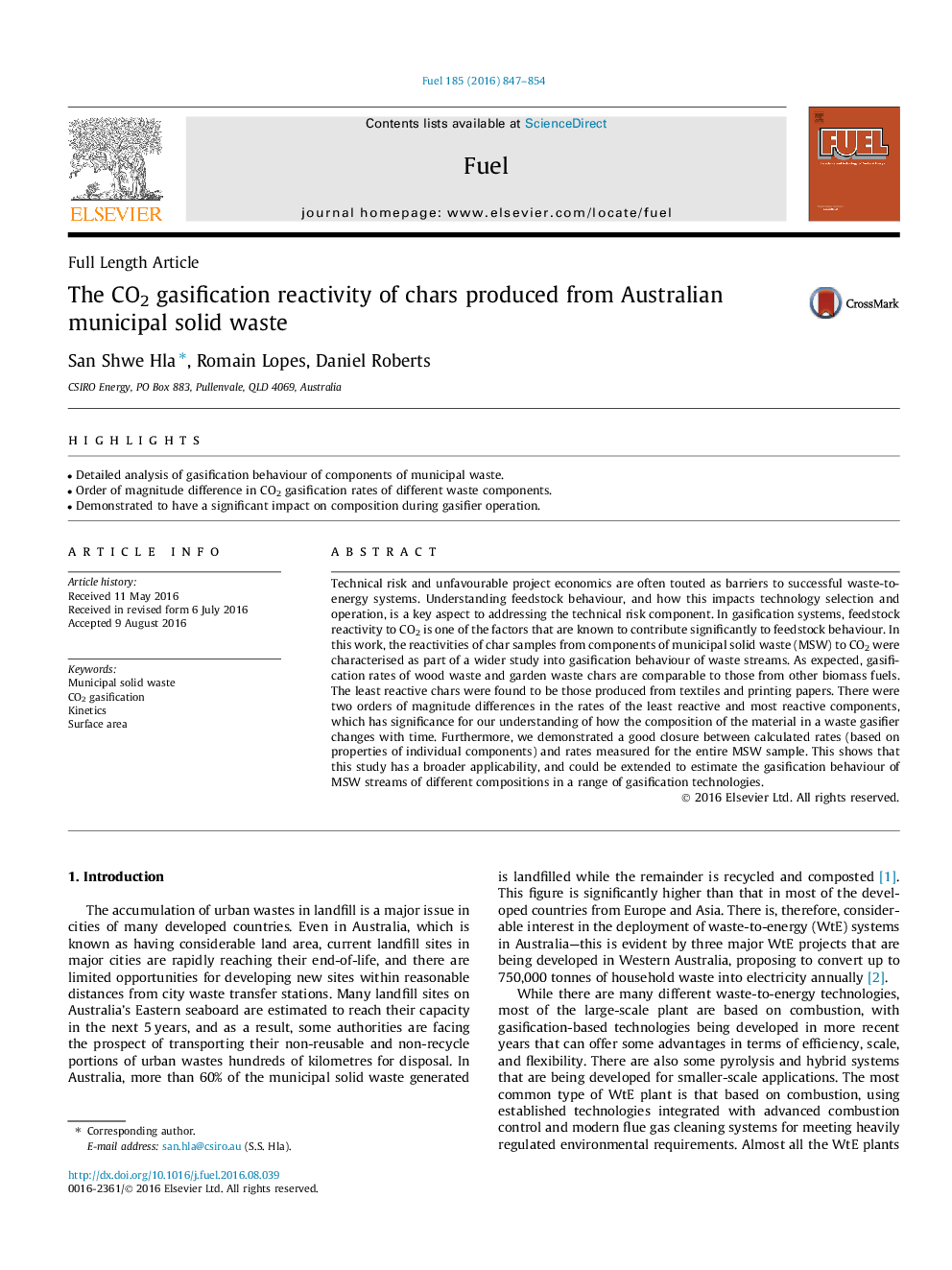| Article ID | Journal | Published Year | Pages | File Type |
|---|---|---|---|---|
| 6632899 | Fuel | 2016 | 8 Pages |
Abstract
Technical risk and unfavourable project economics are often touted as barriers to successful waste-to-energy systems. Understanding feedstock behaviour, and how this impacts technology selection and operation, is a key aspect to addressing the technical risk component. In gasification systems, feedstock reactivity to CO2 is one of the factors that are known to contribute significantly to feedstock behaviour. In this work, the reactivities of char samples from components of municipal solid waste (MSW) to CO2 were characterised as part of a wider study into gasification behaviour of waste streams. As expected, gasification rates of wood waste and garden waste chars are comparable to those from other biomass fuels. The least reactive chars were found to be those produced from textiles and printing papers. There were two orders of magnitude differences in the rates of the least reactive and most reactive components, which has significance for our understanding of how the composition of the material in a waste gasifier changes with time. Furthermore, we demonstrated a good closure between calculated rates (based on properties of individual components) and rates measured for the entire MSW sample. This shows that this study has a broader applicability, and could be extended to estimate the gasification behaviour of MSW streams of different compositions in a range of gasification technologies.
Related Topics
Physical Sciences and Engineering
Chemical Engineering
Chemical Engineering (General)
Authors
San Shwe Hla, Romain Lopes, Daniel Roberts,
